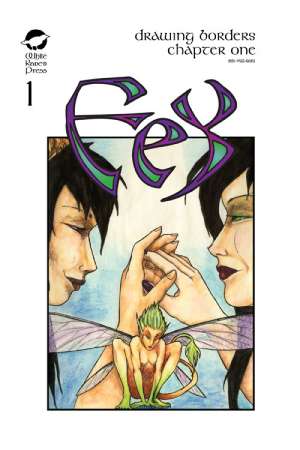It doesn't really seem that it has, but then, it's hard to tell just from looking at the little blurbs and cover images. And there doesn't seem to be a whole lot of information online (unless I'm looking in the wrong place).
So I'm starting to put together a list, and if you think of anything I missed (and I know there are some--there's a niggling in the back of my head that tells me I probably left out something important), please leave a comment or shoot me an email. For now, this list will just include North American and European comics available in English, but if you know of some in other languages, let me know and I'll keep track of those, too. I'll also eventually compile a list of manga (but there are so many that could at least marginally qualify as UF that I'm a bit daunted).
Vertigo Books
- Sandman
- Death
- Books of Magic
- Books of Faerie
- Lucifer
- Preacher
- Hellblazer
- Fables
Other Publishers
- The Unwritten
- Locke & Key
- Hellboy/BPRD
- The Good Neighbours trilogy (Kith, Kin and Kind) by Holly Black and Ted Naifeh
- Foiled by Jane Yolen
- Courtney Crumrin series by Ted Naifeh (I may be stretching the UF definition a little, but I love this series)
- Mercy Thompson: Homecoming by Patricia Briggs (I put this here rather than in adaptations because it's a new story)
Webcomics
- Twilight Lady by Blake JK Chen
- Fey: Drawing Borders by nico (disclaimer: I am half the team that is nico) - also available in print
Adaptations of Novels
- Neverwhere by Neil Gaiman
- Dark Swan: Storm Born by Richelle Mead
- various titles of Anita Blake books by Laurell K. Hamilton
- Dresden Files by Jim Butcher



